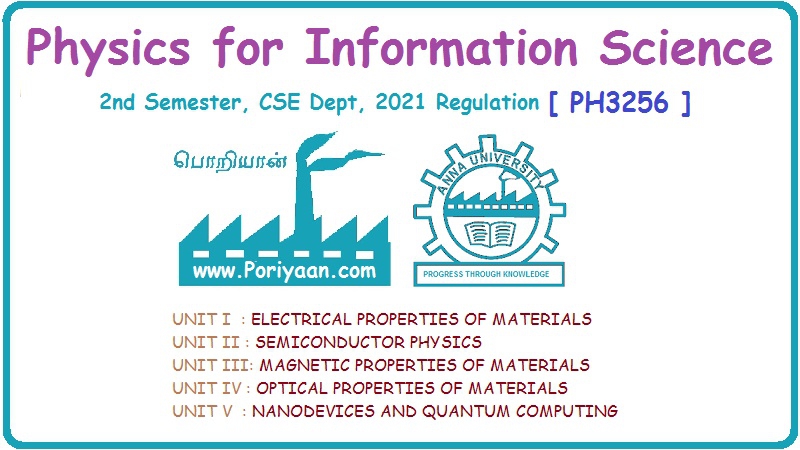Physics for Information Science: Unit II: Semiconductor Physics
Ohmic Contact
Principle, Explanation, Example | Semiconductor
An ohmic contact is a non-rectifying contact which obeys ohm's law i.e., V=IR. The resistance of the ohmic contact should always be low i.e., conductivity should be large.
OHMIC
CONTACT
Principle
An
ohmic contact is a non-rectifying contact which obeys ohm's law i.e., V=IR. The
resistance of the ohmic contact should always be low i.e., conductivity should
be large.
Explanation
Before contact
Let
us consider a metal of fermi energy EFm and an n-type semiconductor
of fermi energy EFs as shown in Fig. 2.32, in which we can see that
when they are separated by a distance (d), the fermi energy (EFm) of
the metal lies above that of the fermi energy of the semiconductor (EFs).
After contact
Now,
when the metal and n-type semiconductor are made to have contact with each
other, then the energy bands of the n-type semiconductor bend downwards near
the contact as shown in Fig. 2.33. The magnitude of the band bending and its
extension into the semiconductor is very small.
Thus,
as a result there is virtually no potential barrier between the metal and the
semiconductor and the resistivity becomes very low (or) almost zero. Therefore
the electrons can flow freely through the contact and the current increases at
the ohmic contact.
Example:
Schottky diode is a very best example, which behaves as a ohmic contact if the
impurity concentration is very high.
Physics for Information Science: Unit II: Semiconductor Physics : Tag: : Principle, Explanation, Example | Semiconductor - Ohmic Contact
Related Topics
Related Subjects
Physics for Information Science
PH3256 2nd Semester CSE Dept | 2021 Regulation | 2nd Semester CSE Dept 2021 Regulation
